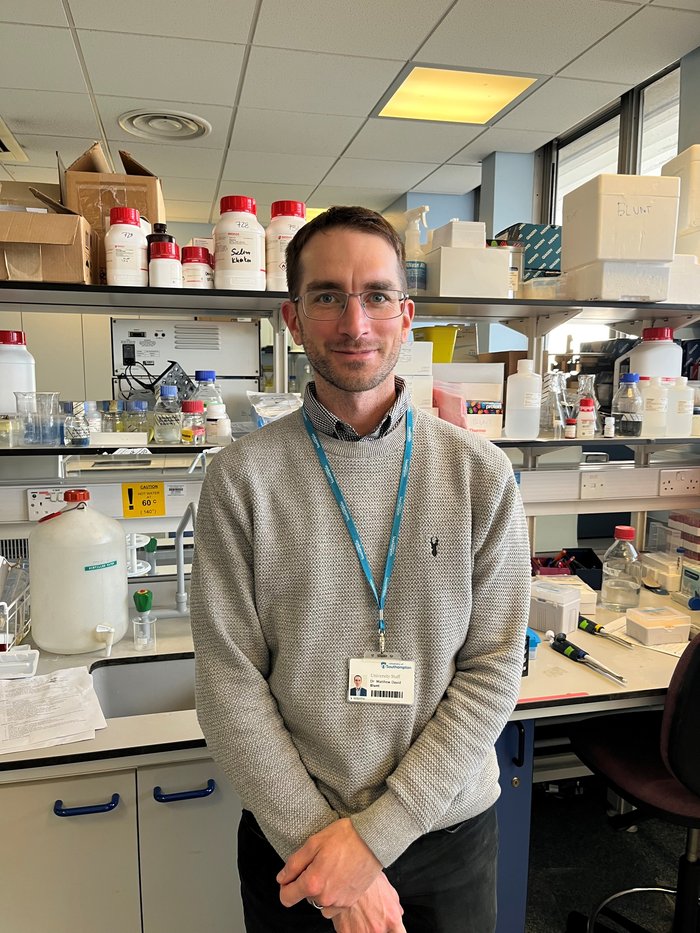Using the immune system to develop a new treatment for non-Hodgkin lymphoma (NHL)
Non-Hodgkin lymphoma (NHL) is often treated with the drug rituximab but over time the cancer can stop responding. Dr Blunt and his team are looking for new way to treat people with NHL using immunotherapy that activates the immune system to attack lymphoma cells.

Dr Matthew Blunt
The challenge
NHL is a type of blood cancer that affects white blood cells called lymphocytes. Lymphocytes are an important part of your immune system, helping the body recognise and destroy harmful viruses, bacteria, and abnormal cells. As some people with lymphoma can stop responding to their initial drug treatments, new options are desperately needed. Immunotherapy is a treatment that helps your immune system find and attack the cancer cells. A key breakthrough for treating NHL was the drug rituximab which was introduced over 20 years ago. Rituximab stimulates the immune system to target cancer via a particular protein called CD20 and is often one of the first treatments given after diagnosis. It has dramatically improved survival for people with lymphoma and leukaemia, but over time the cancer can stop responding. We still need to find new way and better ways to overcome this resistance and keep improving treatments.
The project
Dr Blunt and his team at the University of Southampton are looking for new treatments for people with lymphoma whose cancer no longer responds to existing drugs. They’ve recently discovered that lymphoma cells can stop rituximab from working properly by no longer making the protein CD20. Using this knowledge, they plan to develop a new treatment that can overcome this resistance by adding a second target. This way, even if the lymphoma cells lose one of the proteins, they can still be targeted. Dr Blunt’s team want to create this new type of immunotherapy and test how much more effective it is against lymphoma cells compared to current treatments. They plan to use lymphoma cells donated by patients at Southampton General Hospital along with their established lab techniques to see how well the new therapy works and compare it directly with existing treatments.
The future
If successful, Dr Blunt hopes to have enough data to apply for further funding to move this new immunotherapy into clinical trials. They hope this therapy will kill lymphoma cells more effectively and safely than rituximab due to the more specialised targeting of cancer cells. This could mean fewer side effects and a better chance of curing the disease. They also hope that this drug can be easily adapted to target other types of blood cancers such as myeloma and acute myeloid leukaemia.
Funding
This project is part of the innovative pilot grant round.
